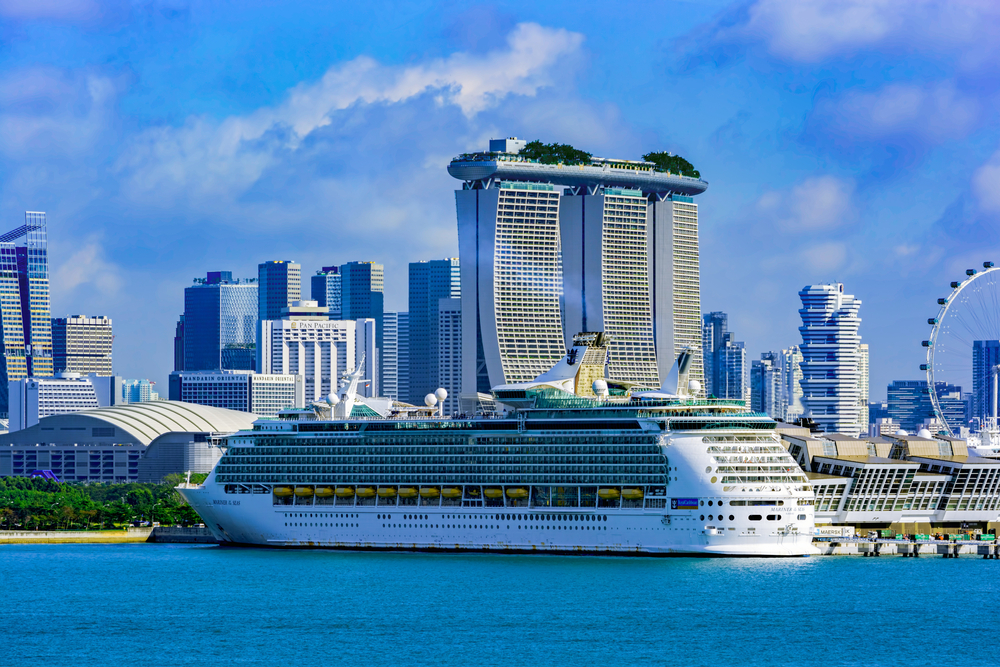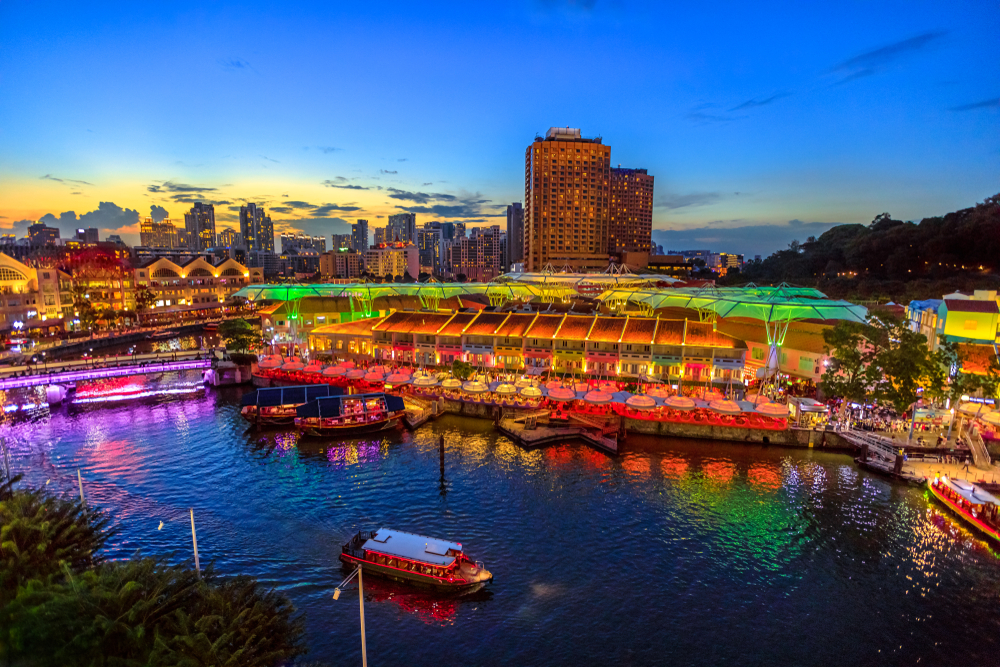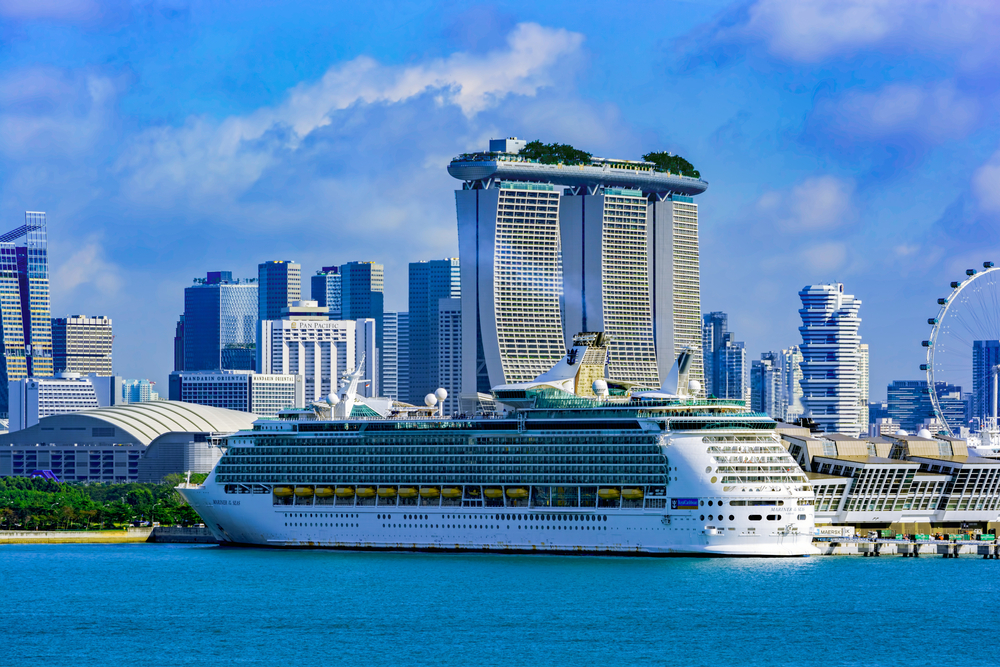[ad_1]

Cruise lines homeported in Singapore will be able to unfurl their sails starting November as the country works toward the safe resumption of the sector.
To provide assurance for safe cruising, the Singapore Tourism Board (STB) is developing a mandatory CruiseSafe certification programme, which sets out stringent hygiene and safety measures throughout the passenger journey – from prior to boarding, to after disembarkation.
The safety and well-being of our local community, as well as passengers and crew, remain the top priority. In light of this, the pilot cruises will be:
- round-trips with no ports of call;
- sailing at a reduced capacity of up to 50%; and
- only open to Singapore residents
To allow time to review the operationalisation of enhanced safety protocols, the pilot cruises will start from 6 November with Genting Cruise Lines’ World Dream. Royal Caribbean International’s Quantum of the Seas will begin sailing in December.
The Government will monitor the outcomes of the pilot sailings carefully in the coming months before deciding on the next steps for cruises.
CruiseSafe Certification
STB’s CruiseSafe was created in consultation with the industry and is benchmarked against global health and safety standards. Singapore is one of the first countries in the world to develop and implement a mandatory audit and certification programme for cruise lines before they can commence sailings.
Prior to sailing, all cruise lines sailing out of Singapore must obtain the CruiseSafe certification, which requires independent assessment by a third-party certification firm. Genting Cruise Lines and Royal Caribbean International are in the process of attaining the certification. They were approved for the pilot as they have demonstrated the ability to put in place stringent protocols and precautionary measures as part of their CruiseSafe certification.
The CruiseSafe standards include:
- Infection control measures at every stage of a passenger’s journey, including a mandatory COVID-19 test prior to boarding
- Strict and frequent cleaning and sanitisation protocols onboard
- Safe management measures aligned with the prevailing national policy at the time of sailing
- Ensuring 100 per cent fresh air throughout the ship
- Reducing ship capacity to enable sufficient safe distancing
- Setting up onboard measures to discourage close contact and inter-mingling between groups
- Emergency response plans for incidents relating to COVID-19
As part of CruiseSafe, the pilot cruises will have to comply with prevailing safe management measures, such as mask-wearing and 1m-safe distancing. To ensure compliance, regular inspections will be conducted onboard during the pilots. Cruise lines that are found to be non-compliant will be subjected to penalties including fines, suspension of sailings and revocation of CruiseSafe certification.
The crew on pilot cruises are subjected to stringent measures beyond Singapore’s prevailing requirements for cross-border travel. For example, the crew who need to enter Singapore to serve on board the pilot cruises must first undergo 14 days isolation in their home country and must test negative for COVID-19 before their departure to Singapore. They will be tested on arrival in Singapore, serving a 14-day Stay-Home Notice (SHN) in Singapore, and will undergo another test at the end of their SHN. Once sailings begin, all crew members will also be routinely tested.

Cruising into the future
As the lead coordinator for a cruise in ASEAN, Singapore aims to set a benchmark for the future of cruising in the region with the development of CruiseSafe standards. Singapore also remains confident of the long-term potential of cruising. Given our cruise industry’s strong fundamentals, we expect cruise performance to rebound when international travel recovers.
“This cruise pilot is a valuable opportunity for cruise operators to reinvent the entire cruise experience in order to regain the confidence of passengers. As ASEAN’s lead coordinator for cruise development, Singapore remains committed to supporting and growing cruise tourism in the region. We will continue to work with cruise lines and our industry stakeholders to chart a new course for safe cruising,” said Mr Keith Tan, chief executive, Singapore Tourism Board.
To prepare for the eventual recovery of the cruise industry, STB has also partnered Cruise Lines International Association (CLIA) and Travel Weekly Asia to hold a series of training webinars for regional travel agents under the ambit of CruiseWorld Asia 2020. Travel agents are key to the industry, accounting for about 80 per cent of cruise packages sold in the region.
The trainings will take place in October and focus on strengthening consumers’ confidence to cruise again by raising awareness of cruise lines’ enhanced sanitisation measures on-board and rebuilding the demand for cruise.
[ad_2]
Source link

